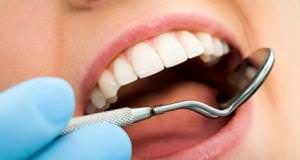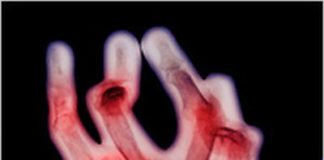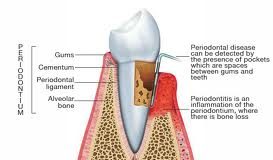Oral Bacteria Enables Breaking Bond On Blood Vessels To Allow Invaders...
A common oral bacteria, Fusobacterium nucleatum, acts like a key to open a door in human blood vessels and leads the way for it and other bacteria like Escherichia coli to invade the body through the blood and make people sick, according to dental researchers at Case Western Reserve University.
Newly Identified Oral Bacterium Linked To Heart Disease And Meningitis
A novel bacterium, thought to be a common inhabitant of the oral cavity, has the potential to cause serious disease if it enters the bloodstream, according to a study in the International Journal of Systematic and Evolutionary Microbiology. Its identification will allow scientists to work out how it causes disease and evaluate the risk that it poses.
Study Hints At Why Gums Suffer With Age
New research from Queen Mary, University of London in collaboration with research groups in the USA sheds light on why gum disease can become more common with old age. The study, published in Nature Immunology, reveals that the deterioration in gum health which often occurs with increasing age is associated with a drop in the level of a chemical called Del-1.
Joint Failures Potentially Linked To Oral Bacteria
The culprit behind a failed hip or knee replacements might be found in the mouth. DNA testing of bacteria from the fluid that lubricates hip and knee joints had bacteria with the same DNA as the plaque from patients with gum disease and in need of a joint replacement.
Message To Postmenopausal Women: ‘Increase Yearly Dental Checkups,’ Researcher Urges
Postmenopausal women have a new health message to hear. Two annual dental checkups aren't enough. Older women need more, according to research findings from the Case Western Reserve University School of Dental Medicine and the Cleveland Clinic.
Chewing Ability Linked To Reduced Dementia Risk
Can you bite into an apple? If so, you are more likely to maintain mental abilities, according to new research from Karolinska Institutet in Sweden. The population is aging, and the older we become the more likely it is that we risk deterioration of our cognitive functions, such as memory, decision-making and problem solving. Research indicates several possible contributors to these changes, with several studies demonstrating an association between not having teeth and loss of cognitive...
Being Overweight Linked To Higher Risk Of Gum Disease
Impacting approximately one-third of the U.S. population, obesity is a significant health concern for Americans. It's a risk factor for developing type 2 diabetes, heart disease, and certain forms of cancer, and now, according to an article published in the January/February 2013 issue of General Dentistry, the peer-reviewed clinical journal of the Academy of General Dentistry (AGD), it also may be a risk factor for gum disease.
Ancient Teeth Bacteria Record Disease Evolution
DNA preserved in calcified bacteria on the teeth of ancient human skeletons has shed light on the health consequences of the evolving diet and behaviour from the Stone Age to the modern day. The ancient genetic record reveals the negative changes in oral bacteria brought about by the dietary shifts as humans became farmers, and later with the introduction of food manufacturing in the Industrial Revolution.
Gum Inflammation Linked To Alzheimer’s Disease
NYU dental researchers have found the first long-term evidence that periodontal (gum) disease may increase the risk of cognitive dysfunction associated with Alzheimer's disease...
Cold Sores Linked to Common Gene Mutation
Cold sores affect around one in five people but, until now, no one has been sure why some are more prone to the virus...
Bacteria Responsible for Gum Disease Linked to Rheumatoid Arthritis
Chronic periodontal disease (PD) – one of the most prevalent infectious inflammatory diseases affecting humans – has been positively linked to systemic inflammatory disorders,...
Drug May Guard Against Periodontitis, Related Chronic Diseases
A drug currently used to treat intestinal worms could protect people from periodontitis, an advanced gum disease, which untreated can erode the structures —...


















